The Latest Breakthroughs in Cancer Treatment
Introduction
In recent years, there have been remarkable advancements in cancer treatment, providing hope for millions of patients worldwide. The field of oncology is constantly evolving, with scientists and medical professionals working tirelessly to find innovative solutions to combat this devastating disease. This article will explore the latest breakthroughs in cancer treatment, highlighting cutting-edge therapies and approaches that have shown promising results.
Table of Contents
- Understanding Cancer: Causes and Challenges
- Immunotherapy: Empowering the Immune System
- Precision Medicine: Tailoring Treatment to Individuals
- CAR-T Cell Therapy: Revolutionizing Blood Cancer Treatment
- Liquid Biopsies: Non-Invasive Cancer Detection
- Targeted Therapies: Disrupting Cancer Cells
- Nanotechnology: Tiny Tools with Big Potential
- Immunogenomics: Unleashing the Power of Genomics
- Radiomics: Personalizing Radiation Therapy
- Artificial Intelligence in Cancer Treatment
- Gene Editing: A Promising Frontier
- Cancer Vaccines: Training the Immune System
- Combining Therapies: Synergistic Effects
- Hope for Rare Cancers: Advances in Orphan Drug Development
- Integrative Medicine: A Holistic Approach to Cancer Care
1. Understanding Cancer: Causes and Challenges
Before delving into the latest breakthroughs, it is essential to understand the complexity of cancer. Cancer is a collection of illnesses characterized by the unregulated proliferation and dissemination of abnormal cells. Various factors, including genetic mutations, environmental exposures, and lifestyle choices, contribute to its development. Overcoming the challenges posed by cancer requires a multi-faceted approach that addresses its diverse manifestations.
also read Cancer eBook – How To Stop Your Metastasized Cancer
2. Immunotherapy: Empowering the Immune System
Immunotherapy has emerged as a revolutionary advancement in the field of cancer treatment. It harnesses the power of the immune system to recognize and destroy cancer cells. Checkpoint inhibitors, adoptive cell transfer, and immune system modulators are among the immunotherapeutic approaches that have yielded remarkable responses in patients with advanced cancers. By unlocking the immune system’s potential, immunotherapy offers new hope in the fight against cancer.
3. Precision Medicine: Tailoring Treatment to Individuals
Precision medicine takes into account an individual’s genetic makeup, lifestyle, and environment to develop personalized treatment plans. Through genomic profiling, healthcare professionals can identify specific genetic alterations driving a patient’s cancer and target them with tailored therapies. Precision medicine optimizes treatment outcomes while minimizing unnecessary side effects, leading to more effective and patient-centric care.
4. CAR-T Cell Therapy: Revolutionizing Blood Cancer Treatment
Chimeric Antigen Receptor T-cell (CAR-T) therapy has revolutionized the treatment of certain blood cancers. This groundbreaking approach involves modifying a patient’s T-cells to express receptors that recognize and attack cancer cells. CAR-T cell therapy has demonstrated remarkable success in patients with leukemia and lymphoma, providing long-term remissions and even cures in some cases.
5. Liquid Biopsies: Non-Invasive Cancer Detection
Traditionally, cancer diagnosis involved invasive procedures such as surgical biopsies. However, liquid biopsies have emerged as a non-invasive alternative for cancer detection. These tests analyze circulating tumor DNA or cancer-related biomarkers in the blood, allowing for early detection, monitoring of treatment response, and identification of potential resistance mechanisms. Liquid biopsies offer a less invasive and more accessible approach to cancer diagnosis and management.
6. Targeted Therapies: Disrupting Cancer Cells
Targeted therapies aim to disrupt specific molecules or pathways critical for cancer cell growth and survival. By targeting these unique vulnerabilities, targeted therapies can effectively inhibit tumor growth with reduced toxicity to normal cells. Some instances of these include tyrosine kinase inhibitors, monoclonal antibodies, and hormone therapies Targeted therapies have transformed the treatment landscape for many cancers, improving patient outcomes and quality of life.
7. Nanotechnology: Tiny Tools with Big Potential
Nanotechnology has opened up new possibilities in cancer diagnosis and treatment. Nanoparticles can deliver drugs directly to tumors, enhancing drug efficacy while minimizing side effects. Additionally, nanosensors and imaging techniques enable early detection and precise monitoring of cancer progression. The integration of nanotechnology in cancer care holds great promise for improved diagnostics and therapeutic interventions.
8. Immunogenomics: Unleashing the Power of Genomics
Immunogenomics combines genomics and immunology to gain insights into the immune system’s role in cancer. By analyzing the genetic makeup of both cancer cells and the immune system, researchers can identify biomarkers that predict treatment response and guide immunotherapy decisions. Immunogenomics has the potential to revolutionize cancer treatment by enabling personalized immunotherapies tailored to an individual’s immune profile.
9. Radiomics: Personalizing Radiation Therapy
Radiomics is a field that utilizes advanced imaging techniques and artificial intelligence to extract valuable information from medical images. By analyzing a vast array of imaging data, radiomics can predict treatment outcomes, guide treatment planning, and monitor treatment response. This approach enables personalized radiation therapy, optimizing dosage and targeting specific areas while sparing healthy tissues.
10. Artificial Intelligence in Cancer Treatment

Artificial Intelligence (AI) is transforming various aspects of cancer treatment. Machine learning algorithms can analyze vast amounts of patient data, identify patterns, and make predictions to aid in diagnosis, treatment planning, and outcome prediction. AI-powered tools also assist in radiology image analysis, pathology interpretation, and drug discovery, augmenting the capabilities of healthcare professionals and improving patient care.
11. Gene Editing: A Promising Frontier
Gene editing technologies, such as CRISPR-Cas9, offer new avenues for precise genetic modifications. In the context of cancer, gene editing holds promise for correcting cancer-causing mutations or enhancing the effectiveness of existing therapies. Although still in the early stages of development, gene editing has the potential to revolutionize cancer treatment by directly targeting and modifying cancer-related genes.
12. Cancer Vaccines: Training the Immune System
Cancer vaccines strive to activate the immune system to identify and eliminate cancer cells These vaccines can be designed to target specific cancer antigens or activate general immune responses. While cancer vaccines have shown promise in certain cancers, their full potential is yet to be realized. Ongoing research and clinical trials are focused on optimizing vaccine formulations and identifying the most effective combinations with other therapies.
13. Combining Therapies: Synergistic Effects
The future of cancer treatment lies in combining different treatment modalities for synergistic effects. By targeting cancer from multiple angles, such as combining immunotherapy with targeted therapy or chemotherapy, researchers hope to achieve enhanced treatment responses and overcome resistance mechanisms. Combination therapies hold immense potential for improving patient outcomes and extending survival rates.
14. Hope for Rare Cancers: Advances in Orphan Drug Development
Rare cancers often pose unique challenges due to limited research and treatment options. However, significant progress has been made in orphan drug development, focusing on therapies tailored to specific rare cancers. Precision medicine approaches, targeted therapies, and immunotherapies offer hope for patients with rare cancers, addressing their unique biological characteristics and providing more effective treatment options.
15. Integrative Medicine: A Holistic Approach to Cancer Care
Integrative medicine combines conventional cancer treatments with evidence-based complementary therapies. These therapies, including acupuncture, mindfulness, and nutritional support, aim to improve overall well-being and quality of life for cancer patients. Integrative medicine acknowledges the importance of addressing physical, emotional, and psychological aspects of cancer care, promoting a holistic approach to healing.
Conclusion
The landscape of cancer treatment is evolving rapidly, driven by breakthroughs in research and innovation. From immunotherapy and precision medicine to gene editing and nanotechnology, these advancements offer new hope and improved outcomes for cancer patients. By harnessing the power of the immune system, targeting specific genetic alterations, and utilizing cutting-edge technologies, the latest breakthroughs in cancer treatment are transforming the way we approach this complex disease.
FAQs (Frequently Asked Questions)
-
What are the latest breakthroughs in cancer treatment?
- Answer: The latest breakthroughs include immunotherapy, precision medicine, CAR-T cell therapy, liquid biopsies, targeted therapies, nanotechnology, immunogenomics, radiomics, artificial intelligence, gene editing, cancer vaccines, combination therapies, advances in orphan drug development, and integrative medicine.
-
How does immunotherapy work in cancer treatment?
- Answer: Immunotherapy empowers the immune system to recognize and destroy cancer cells. It includes checkpoint inhibitors, adoptive cell transfer, and immune system modulators that enhance the body’s natural defenses against cancer.
-
What is precision medicine, and how does it benefit cancer patients?
- Answer: Precision medicine involves tailoring cancer treatment to an individual’s genetic makeup, lifestyle, and environment. By identifying specific genetic alterations driving a patient’s cancer, precision medicine allows for targeted therapies that optimize treatment outcomes while minimizing side effects.
-
What is the role of nanotechnology in cancer treatment?
- Answer: Nanotechnology enables targeted drug delivery to tumors, improving drug efficacy while minimizing side effects. It also offers advanced imaging techniques and sensors for early cancer detection and precise monitoring of cancer progression.
-
How does artificial intelligence contribute to cancer treatment?
- Answer: Artificial intelligence analyzes vast amounts of patient data, assisting in diagnosis, treatment planning, and outcome prediction. AI-powered tools also aid in radiology image analysis, pathology interpretation, and drug discovery, augmenting healthcare professionals’ capabilities.



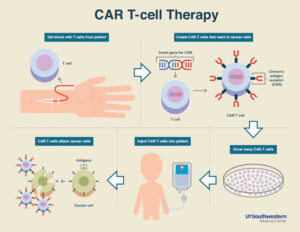
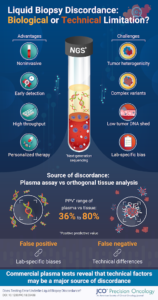
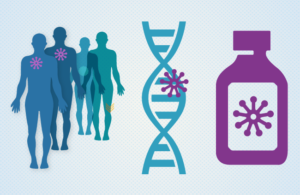


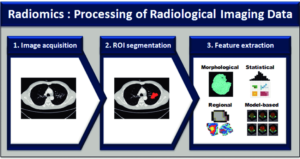
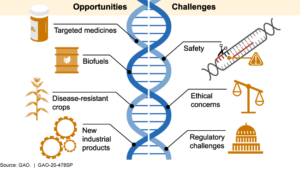

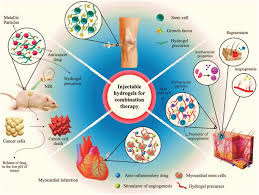




 Viesearch - The Human-curated Search Engine
Viesearch - The Human-curated Search Engine

2 Comments